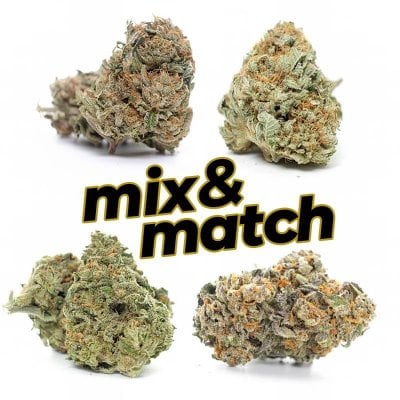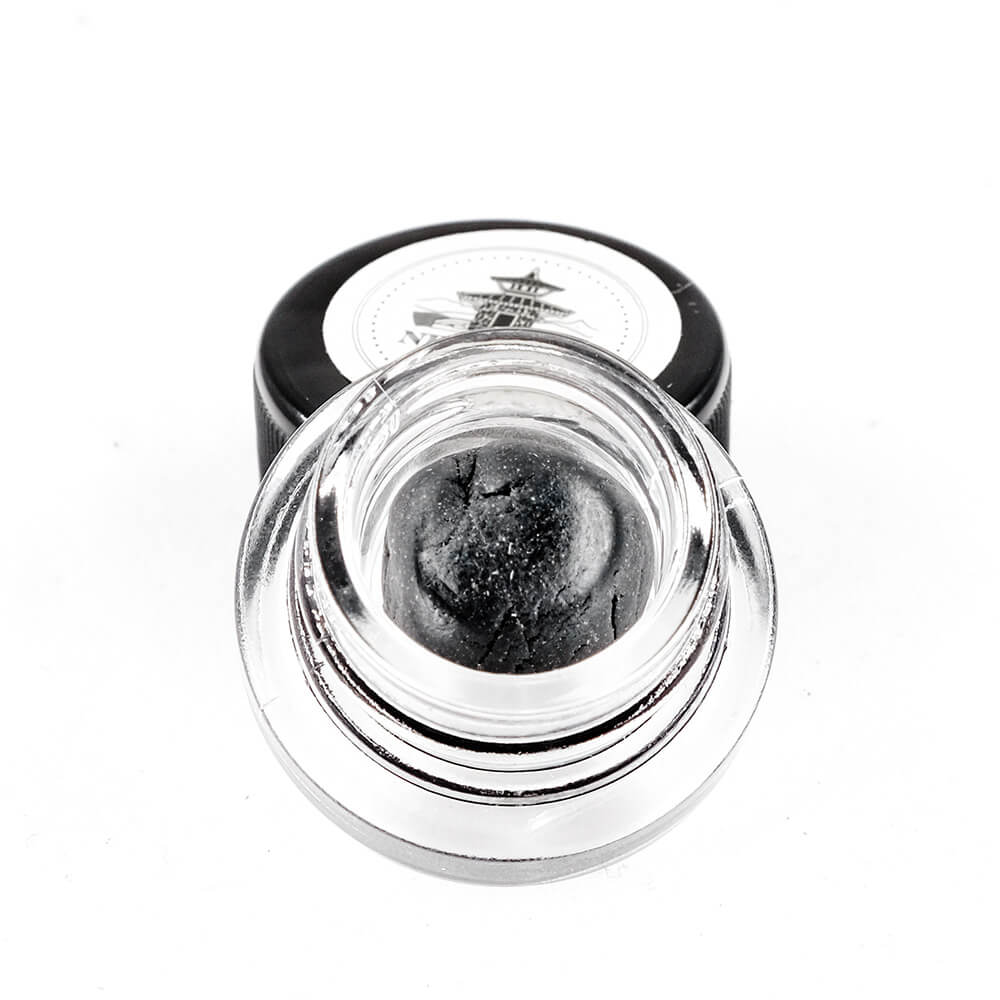You’ve probably come across both hemp oil and CBD oil while browsing wellness products — maybe in a skincare aisle, maybe online, or maybe in a supplement someone recommended.
At a glance, they sound like they’d do the same thing… but once you start digging, things get confusing fast.
One is commonly found in skincare and cooking, while the other is used for its potential therapeutic benefits. Both come from the hemp plant — but beyond that, they take very different paths.
So if you’re unsure which one’s right for your needs (or if you’ve accidentally bought the wrong one before), this guide will clear it up — quickly and simply.
Is Hemp Oil the Same as CBD Oil?
No. While both come from the hemp plant, hemp oil is typically made from the seeds and contains no cannabinoids, whereas CBD oil is extracted from the plant’s flowers and leaves and contains cannabidiol (CBD).
We’ll discuss more about these two in the next section.
Hemp Oil and CBD Oil Overview
Hemp seed oil and CBD oil are often confused due to their shared origin—the hemp plant. But they serve very different purposes.
Let’s break down each one so you can better understand what sets them apart.
What is Hemp Oil?
Hemp seed oil is a nutrient-rich oil derived strictly from the seeds of the hemp plant. It contains no cannabinoids like CBD or THC, which makes it very different in both purpose and effect from CBD oil.
How Its Made
Hemp seed oil is extracted through cold-pressing hemp seeds. This process is similar to how flaxseed or olive oils are made. Since the seeds don’t contain cannabinoids, the final product lacks CBD or THC entirely.
Common Uses
This oil is widely used in:
- Skincare products for moisturizing and soothing dry skin
- Cooking oils or nutritional supplements, thanks to its healthy fats
- Hair care and cosmetics for its nourishing properties
It’s ideal for people looking for natural, plant-based wellness products but who don’t need or want cannabinoid content.
Pros
- Rich in omega-3 and omega-6 fatty acids
- Contains antioxidants and vitamin E
- Supports skin, heart, and joint health
Cons
- Does not provide any of the therapeutic effects associated with CBD (like anxiety or pain relief)
- Often mistaken for CBD oil, leading to misuse or disappointment if expectations aren’t clear
What is CBD Oil?
CBD oil is extracted from the flowers, leaves, and stalks of the hemp plant and is prized for its cannabidiol (CBD) content. It interacts with the body’s endocannabinoid system, offering potential therapeutic effects.
How Its Made
CBD is typically extracted using CO2 or ethanol methods, which preserve the beneficial compounds in the plant. The extract is then mixed with a carrier oil like MCT oil or hemp seed oil.
Types
Understanding the types can help guide the best choice:
- Full-spectrum: Contains CBD, THC (under legal limits), and other cannabinoids
- Broad-spectrum: Includes other cannabinoids but no THC
- CBD isolate: Pure CBD, with all other plant compounds removed
Each type offers slightly different effects based on how the body interacts with the full range of compounds (known as the entourage effect).
Common Uses of CBD Oil
CBD oil is often used to:
- Ease chronic pain and inflammation
- Reduce anxiety or stress
- Improve sleep quality
- Support focus and relaxation
It’s available in various forms like tinctures, capsules, edibles, and topicals.
Pros
- May relieve pain, reduce anxiety, and aid sleep
- Non-intoxicating and generally well-tolerated
- Can be used daily for wellness or as needed for specific issues
Cons (usually mild and uncommon):
- Drowsiness or fatigue
- Dry mouth
- Changes in appetite or digestion
- Possible interaction with medications
What’s the Difference Between CBD Oil and Hemp Oil?
Hemp oil (hemp seed oil) is made from the seeds and contains little to no CBD, mainly used for nutrition and skincare. CBD oil is extracted from the plant’s flowers and leaves, and is used for its potential therapeutic effects like pain or anxiety relief.
Both come from the same plant. Neither will get you high. But they serve very different purposes — and knowing that helps you avoid buying the wrong product.
Extraction Source
Hemp seed oil is extracted by cold-pressing the seeds of the hemp plant.
These seeds don’t contain any cannabinoids, which means the oil lacks therapeutic compounds like CBD or THC. On the other hand, CBD oil is made by extracting cannabinoids from the flowers, leaves, and stalks of the plant—parts where CBD is naturally concentrated.
Common extraction methods for CBD include CO₂ or ethanol processing, which preserve cannabinoid content.
Cannabinoid Content
The primary difference between the two is cannabinoid content.
Hemp seed oil contains virtually no CBD or THC, making it more of a nutritional supplement than a therapeutic product. In contrast, CBD oil contains cannabidiol and possibly other cannabinoids, depending on whether it’s full-spectrum, broad-spectrum, or an isolate.
Full-spectrum includes small amounts of THC (within the legal 0.3% limit), while broad-spectrum removes THC but retains other cannabinoids. Isolate contains only CBD.
Uses and Applications
Hemp seed oil is mostly used for general wellness.
It’s rich in omega fatty acids and vitamin E, making it popular in skincare, haircare, and cooking. It doesn’t provide relief for anxiety, pain, or other therapeutic concerns. CBD oil, however, is often used for its potential calming, anti-inflammatory, and pain-relieving effects.
People take it to manage conditions like stress, sleep issues, or chronic pain. It’s available in tinctures, capsules, edibles, and topical forms.
Legal Status
Legally, both oils are generally permitted as long as they’re derived from hemp and contain less than 0.3% THC.
That said, CBD oil may face more regulatory scrutiny, depending on the state or country, especially when marketed with therapeutic claims.
Hemp seed oil is treated more like a food or skincare ingredient and faces fewer restrictions.
Which is Better Between Hemp Seed Oil and CBD Oil?
The answer depends entirely on what you’re looking for. Hemp seed oil and CBD oil are designed for different purposes, so one isn’t objectively better than the other—they simply serve different needs.
If your goal is nutritional support or skincare, hemp seed oil is the better option. It’s rich in healthy fats like omega-3 and omega-6, as well as antioxidants and vitamin E. It’s great for moisturizing skin, promoting heart health, and supporting a balanced diet. However, it won’t provide therapeutic benefits like stress relief or pain reduction because it contains no cannabinoids.
If you’re looking for relief from anxiety, pain, inflammation, or sleep issues, CBD oil is the clear choice. It interacts with your body’s endocannabinoid system, and many users report noticeable improvements in mood, focus, and general wellness. However, it’s more expensive, and quality can vary depending on the brand and type (full-spectrum, broad-spectrum, or isolate).
In short:
- Choose hemp seed oil for nutritional value or skincare.
- Choose CBD oil for therapeutic or calming effects.
It’s not a matter of which is better overall—it’s about which is better for your specific need.
Conclusion
Now that you know the difference between hemp seed oil and CBD oil, you’re in a much better spot to shop smart — whether you’re after nutrition, skincare, or natural relief from pain, stress, or sleep issues. One gives your body a boost from the outside in… the other works from the inside out.
No matter where you’re at in your wellness journey, the most important thing is knowing what you’re putting into (or onto) your body — and why. So take your time, read labels, and always buy from trusted sources.
If you’re ready to explore high-quality options, Buy My Weed Online has a full range of CBD oils, CBD tinctures, CBD topicals, and even CBD for dogs — all backed by transparency and trusted reviews.
Curious about edible options? You might enjoy comparing CBD gummies or checking out how hemp gummies differ from CBD gummies.
And if you love learning about strains, effects, or product tips, the BMWO blog is packed with guides like God’s Green Crack THC content or comparisons like White Wedding vs. Wedding Cake.
Whatever you choose — take care, stay curious, and good luck on your wellness journey. We’ll see you over at BuyMyWeedOnline.
FAQs
Can you take hemp oil and CBD oil together?
Yes, you can. Since they serve different purposes — hemp oil for nutritional support and CBD oil for potential therapeutic effects — many people use both as part of their wellness routine. Just make sure to check dosage and consult your healthcare provider if you’re on other medications.
Will hemp oil or CBD oil make me fail a drug test?
Hemp seed oil won’t affect a drug test because it contains no THC. CBD oil, especially full-spectrum versions, may contain trace amounts of THC (under 0.3%), which could show up on a drug test depending on sensitivity and frequency of use. If this is a concern, opt for CBD isolate or broad-spectrum products.
How do I know if a product contains hemp seed oil or CBD?
Check the label closely. If it lists “hemp seed oil” or “cannabis sativa seed oil,” it’s not CBD. Look for “cannabidiol,” “CBD,” or “hemp extract” on the ingredients list to confirm it actually contains CBD. Product categories like CBD oils or CBD tinctures at trusted retailers will help guide you too.
Does hemp oil or CBD oil work faster?
It depends on how you’re using it. Hemp oil doesn’t offer quick, noticeable effects — it supports long-term wellness. CBD oil, especially when taken sublingually (under the tongue), may provide more immediate effects for stress, anxiety, or pain relief. The method of delivery plays a big role, too.
Is there a price difference between hemp seed oil and CBD oil?
Yes. Hemp seed oil is typically cheaper because it’s easier to produce and doesn’t contain cannabinoids. CBD oil — especially full-spectrum or high-strength versions — costs more due to the extraction process and potency. But with CBD, you’re often paying for a very different purpose. You can also contact us just to be sure.
Best Sellers
Buy My Weed Online has everything you need, from premium strains to edibles and concentrates. With unbeatable prices, our online dispensary is guaranteed to be your go-to for all of your cannabis needs.
Shop now and join the thousands of satisfied customers who have already made us their top choice.






















